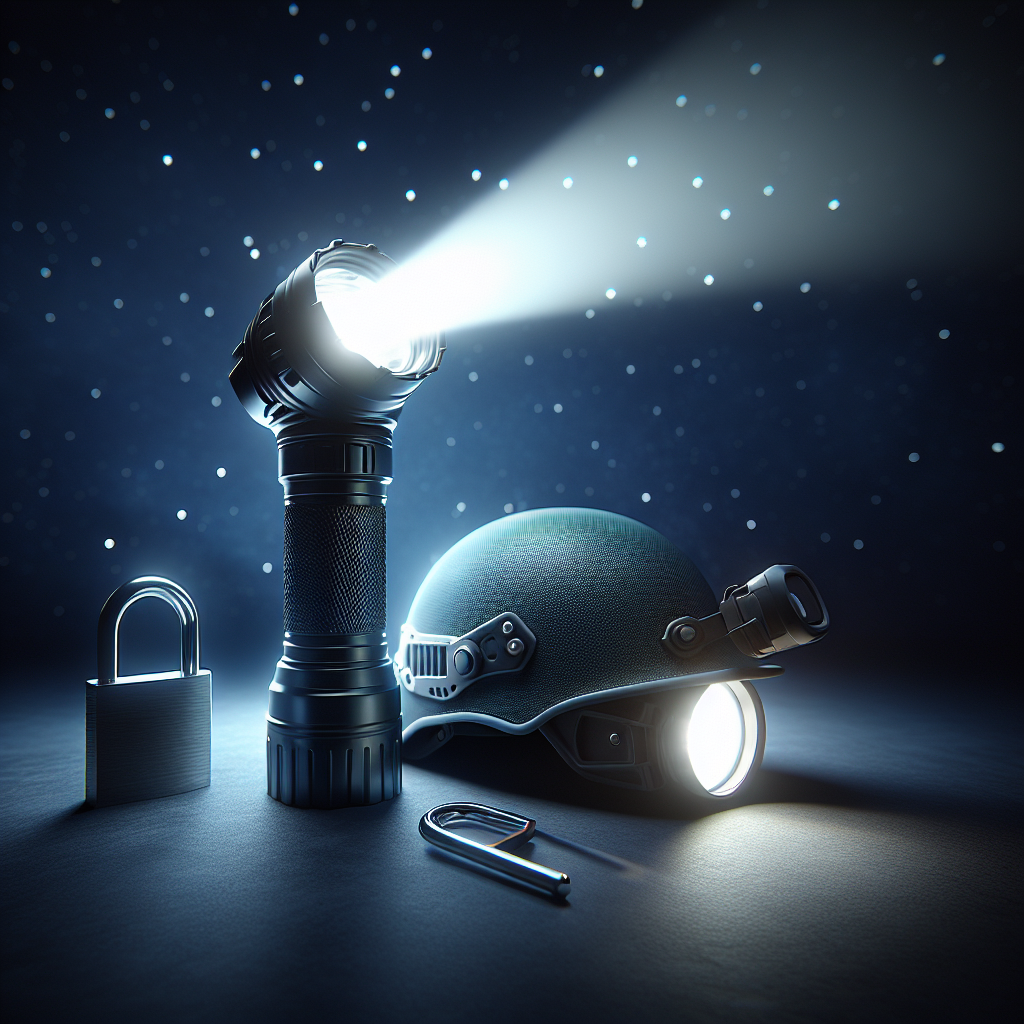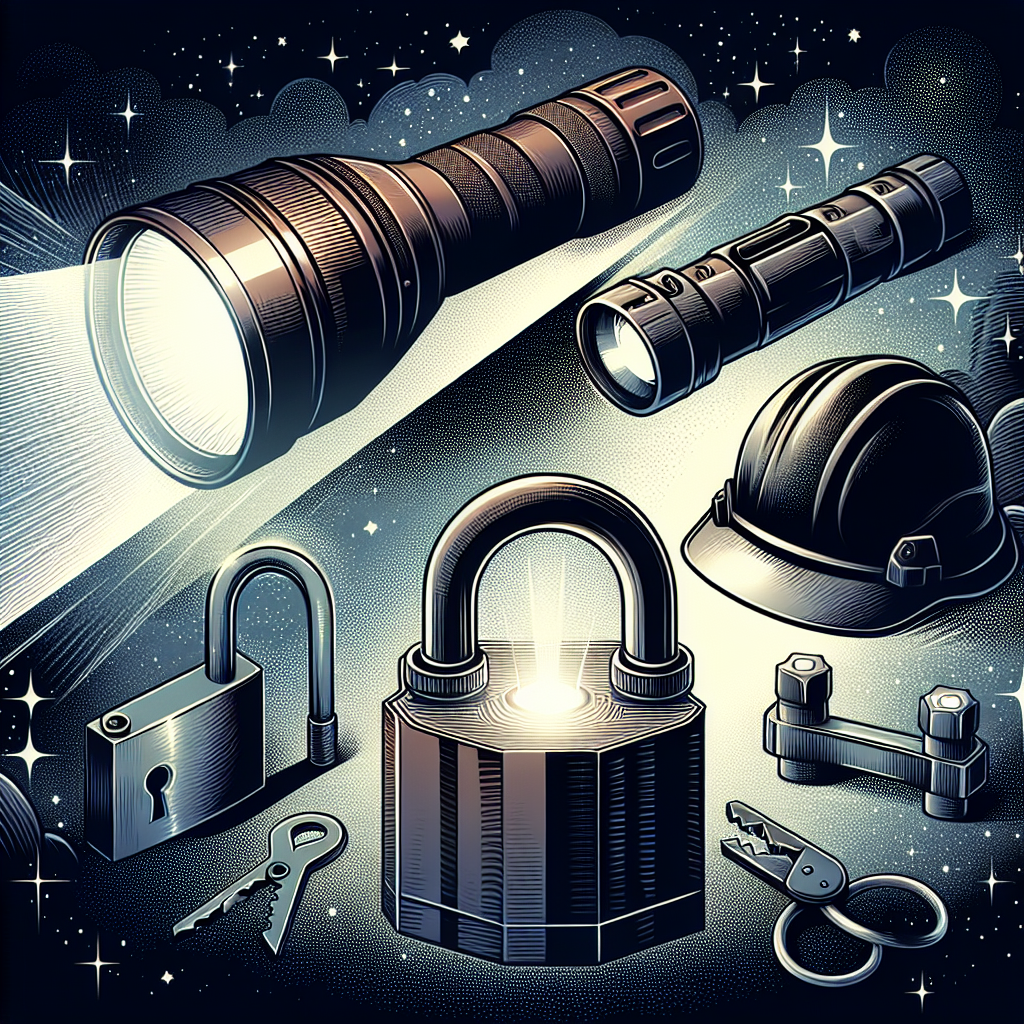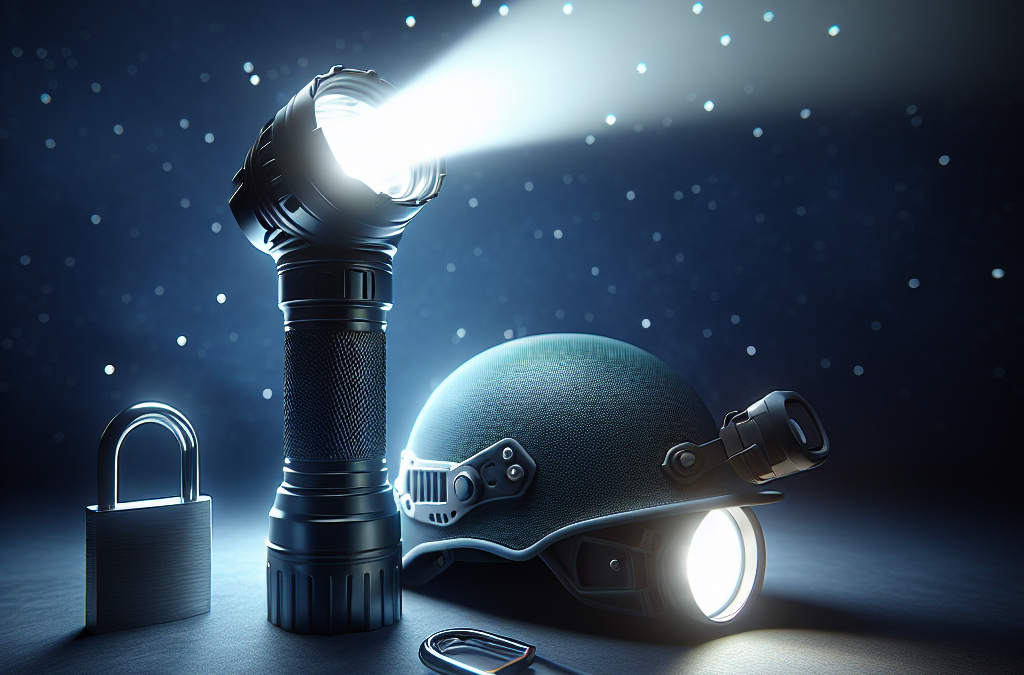Imagine going to bed each night knowing that you are well-equipped to keep yourself secure, from unexpected dangers in the dark corners of your home to potential risks while sleeping. With “Nighttime Safety: Navigating and Sleeping Securely”, you are about to embark on an informative journey that will illuminate your understanding about keeping safe during the twilight hours. Prepare yourself to be enlightened on strategies to navigate your home during the night safely, as well as essential tips to ensure a secure night’s sleep, so you can put your worries to bed!
Understanding the Importance of Nighttime Safety
The importance of nighttime safety cannot be underestimated. In the dark, normal tasks can become more hazardous, and we become more vulnerable to accidents or injuries. Ensuring nighttime safety is paramount to maintaining overall health and well-being.
Guide to the risks associated with nighttime
With the retreat of daylight, you may confront a myriad of potential risks. These range from tripping over unseen obstacles to burglaries happening amidst the veil of darkness. Proper nighttime safety measures can safeguard you from potential injuries or losses.
Relevance of proper sleep and security
Getting enough sleep isn’t just about feeling rested. Proper sleep is also inextricably linked to your security. Being alert and attentive to possible risks during the night starts with a good night’s sleep. Your brain and body function best when you are well-rested, ensuring you can effectively react to potential hazards.
Impact on health, mind, and overall wellbeing
Inadequate safety at night can negatively impact your health and wellbeing, both mentally and physically. An unsafe sleeping environment or coming home late at night without proper security measures can put you at risk, leading to undue stress and affecting your sleep quality, which influences your overall health.
Implementing Nighttime Safety Measures
Understanding the need for nighttime safety is the first step. But knowing how to put it into practice is equally important.
Basic precautions for home safety
At night, ensuring your home is secure is crucial. This includes properly locking all doors and windows, keeping your property well-lit, and considering a home security system.
Importance of a secure sleeping environment
A secure sleeping environment not only contributes to your physical safety but also your mental peace of mind. Your bedroom should be a sanctuary that promotes restful sleep, free of potential hazards like clutter and noise.
Adopting personal safety habits
Developing personal safety habits is a key part of enhancing nighttime safety. This might include keeping a phone nearby at night, informing someone when you’re returning home late, or carrying a safety device when walking alone at night.

Preventing Residential Break-Ins During Night
Preventing home break-ins is a major concern when thinking about nighttime safety.
Best practices for home security
The best practices for home security include keeping your property well-lit, investing in a security system, ensuring all doors and windows are securely locked, and being mindful of what information you make public, such as travel plans.
Latest technology for residential safety
Modern advancements are making homes safer than ever. This includes smart locks, alarm systems that can immediately alert law enforcement, and video doorbells for monitoring visitors.
Importance of alarm systems and well-lit exteriors
Alarm systems play a crucial role in maintaining home security. They act as a deterrent to potential thieves and can alert you or the police to any attempted break-ins. Similarly, well-lit exteriors can deter potential thieves who prefer to operate under the cover of darkness.
Optimizing Sleep Environment for Safety and Serenity
A good night’s sleep goes beyond just maintaining your health—it is also vital for safety.
Creating a soothing and secure sleep space
A good sleeping environment should be serene, comfortable, and secure. This can be achieved by decluttering your surroundings, choosing comfortable bedding, and ensuring your bedroom is adequately secure.
Relevance of digital detox before sleep
Exposure to screens before sleep can interfere with your sleep cycles. Consider a digital detox before sleep—turn off all electronic devices at least an hour before bedtime to help promote better quality sleep.
The role of a good mattress in sleep safety
A good mattress isn’t just important for comfort—it’s also essential for safety. A poor-quality mattress can lead to physical discomfort and restless nights, while a good mattress supports good sleep and, by extension, overall safety.

Nighttime Safety For College Students
Nighttime safety is critically important for college students who often have to travel or study late into the night.
Educating young adults on dangers of nighttime
Education is the first step. Discussing potential dangers with young adults and providing them with safety tips can significantly reduce the risk.
Tips to ensure safety on and off campus
These tips can include traveling in groups at night, carrying some form of personal safety devices, being aware of their surroundings, and utilizing campus security resources.
Handy apps for student safety
Many personal safety apps are available that students can use. These apps can share the user’s location with trusted contacts, alert authorities in an emergency, or provide a virtual safety escort during late-night walks.
Promoting Nighttime Safety for Elderly People
Older adults are at a higher risk of falls or injuries, especially at night.
Securing homes for elderly safety
For older adults, a safe home is essential at night. Installing handrails and removing potential tripping hazards, along with adequate night lighting, are just some ways to secure the home.
Preventing falls at night – best practices
Avoiding nighttime falls includes having a clear path from the bed to the bathroom, using a nightlight, and considering a bedside commode.
Understanding and mitigating risks for dementia patients
Dementia patients often face risks such as disorientation, wandering, and difficulty in distinguishing reality from dreams. Hence, specific safety measures, like locks on doors and windows and sleep routine can be helpful.
Ensuring Safety While Travelling at Night
Whether for work or leisure, knowing how to stay safe while traveling at night is vital.
Recommendations for safe nighttime commuting
Ensure your vehicle is in good condition, stay on well-lit and busy roads whenever possible, and always let someone know your route and expected arrival time.
Protecting yourself and belongings in public transports
Keep an eye on your belongings at all times, avoid displaying valuable items, and sit near the driver or conductor if possible.
Staying at hotels- security basics
Always keep your room locked, don’t open your door to strangers, and be aware of the nearest exits.
Nighttime Safety Precautions for Children
Keeping your children safe at night is a top priority.
Nighttime safety in children’s bedrooms
Removing potential tripping hazards, using nightlights, and ensuring windows and doors are securely locked, can help ensure the safety of children during the night.
Ensuring children’s safety during sleepovers
Before allowing your child to sleepover, ensure the house they will be staying at is safe, the parents are responsible, and your child knows what to do in an emergency.
Educating children about the importance of nighttime safety
Just like adults, children need to understand the importance of nighttime safety. Teach them about potential risks and how they can protect themselves.
Maintaining Nighttime Safety During Outdoor Recreational Activities
Outdoor recreational activities can provide a unique thrill after dark, but they can also come with increased risks.
Measures to ensure safety during nighttime camping
When camping, make sure your campsite is well lit and secure, keep food stored away from your sleeping area, and always have a first-aid kit handy.
Essentials of Night Hiking Safety
When hiking at night, carry a flashlight, go in a group, stick to well-traveled paths and let someone know of your planned route and return time.
Beach safety policies for night
When at the beach at night, swim in designated areas with lifeguards, don’t swim alone or after consuming alcohol, and be aware of local marine life and weather conditions.
Leveraging Technology to Enhance Nighttime Safety
Modern technology offers various ways to enhance nighttime safety.
Understanding Home automation for safety
Home automation systems can control locks, lights, and alarms, making your home safer and more secure.
Portable and wearable tech for personal safety
There are many portable and wearable devices that can enhance personal safety, with features like GPS tracking, fall detection, and panic buttons.
Security apps to navigate safely at night
Security apps can alert authorities in an emergency, monitor your home while you’re away, and help you navigate safely with GPS tracking and maps.
Nighttime safety is a wide-ranging issue that touches on many aspects of life. Yet, with the right awareness, precautions and tools, you can greatly enhance your safety and live with a greater sense of security and peace.

